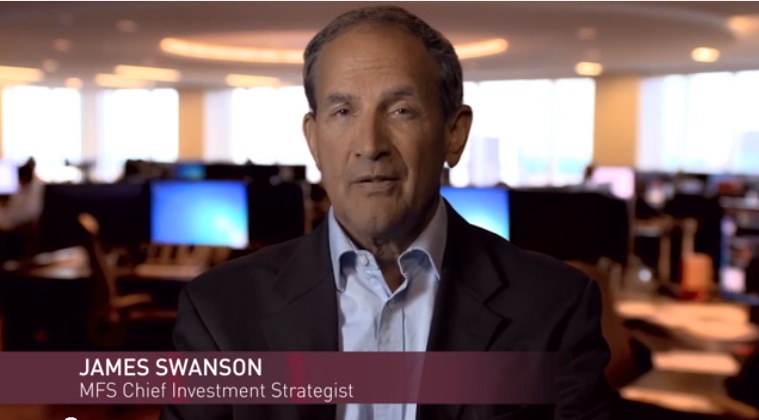What Happened to Income Distribution and Poverty in Latin America?
| By Fórmate a Fondo | 0 Comentarios

Income distribution is a subject of interest to all. It recently gained renewed attention with the research that Thomas Piketty published in the book Capital in the Twenty-First Century. Although data limitations restricted Piketty’s work to a group of developed countries, the debate on the issue gained prominence worldwide, including in Latin America.
What happened to income distribution in Latin America? In order to answer this question, Itaú will use -in a new report by Gino Olivares and Ilan Goldfajn- the information available on the Socio-Economic Database for Latin America and the Caribbean (SEDLAC), a joint initiative of the Centro de Estudios Distributivos Laborales y Sociales (CEDLAS), Universidad Nacional de la Plata (Argentina) and the World Bank, compiling household surveys from 24 countries in the region. Currently, SEDLAC provides information for the period 1992-2012, as well as information for prior years for some countries. Their sample includes eight countries: Argentina, Brazil, Chile, Colombia, Mexico, Paraguay, Peru and Uruguay, representing 80% of the region’s population and 86% of GDP.
Measures of income distribution
There are several ways to measure income distribution, all of them imperfect. To evaluate the evolution of inequality in Latin America, Itaú decided to use two indicators: the income share of the top 10% income-earners of the population and the Gini coefficient. The first one reflects the degree of income concentration held by the most affluent. The second one is the most widely used inequality metric. Below, they present the results obtained with the first of the abovementioned indicators.
Results using the income share of the top 10% income-earners of the population
Probably, the most common and intuitive way to assess inequality is to look at the share of income held by the most favored. In this case, Itaú evaluates the evolution of the income share held by the top 10% income-earners of the population. Chart 1 shows this income distribution indicator at two points in time: 2002 and 2012. The chart clearly shows that, for this period, there was general improvement in income distribution. The Latin American average, weighted by population, declined from 43.0% in 2002 to 29.8% in 2012. However, we also noticed that the decline in inequality was uneven: the initial conditions were differentamong countries, and the magnitude of the fall in inequality in each country was heterogeneous. Peru, Argentina and Uruguay posted the largest falls in our indicator of inequality, while Mexico posted the lowest drop.
This heterogeneity makes it interesting to analyze each case separately. Chart 2 shows the evolution of the income share of the top 10% income-earners in the population for the four countries (Argentina, Brazil, Chile and Mexico) for which we have information covering a longer horizon (1987-2012).
The distribution of income in Brazil became more concentrated between 1987 and 1992 and it has become increasingly less concentrated since then. The recovery is slow at first, but picks up in later years. Chile shows stability in the income distribution indicator between 1987and 2002, improvement between 2002 and 2007 and stability thereafter. The income distribution in Mexico became less concentrated between 1987 and 1992, remained stable between 1992 and 1997 and became more concentrated between 1997 and 2007, and stabilized again between 2007 and 2012. Finally, we see a very peculiar behavior of income distribution in Argentina. Starting from a less concentrated level, the income distribution indicator retreated (worsened) between 1992 and 2002 (particularly between 1997 and 2002), but started improving from then on, reaching a less concentrated income distribution in 2012 than that observed at the beginning of the period under review. Incidentally, this is a common feature for the four countries: in 2012, they all posted the best number in the period under review.
Chart 3 shows the evolution of the income share held by the top 10% income-earners in Colombia, Peru, Paraguay and Uruguay for the period 1997-2012. In Paraguay, inequality rose between 1997 and 2002. The trend reversed between 2002 and 2007, with inequality returning to the 1997 level and remaining stable since then. In Peru, income concentration increased slightly between 1997 and 2002, but from then on has shown significant and continued decline. In Colombia, the information is only available since 2002 and shows high inequality that decreases over time, but not enough to save the country from posting theworst performance.
Finally, Uruguay – the least unequal country in our sample – shows a trajectory of rising inequality between 1997 and 2007 followed by a sharp drop in the later period (2007-2012), reaching a lower level in 2012 than posted in 1997. Out of the four countries, three (Colombia, Peru and Uruguay) posted the lowest level of inequality for the analyzed period in 2012.
Summarizing our results, the eight countries in our sample posted falls in inequality. The trend becomes widespread only since the early years of the twenty-first century. Despite their improvement in income distribution, the four countries (Colombia, Brazil, Paraguay and Chile) that historically posted the worst indicators maintained that condition. At the other extreme, historically less unequal countries (Argentina and Uruguay) posted worsening inequality, but managed to reverse this situation, ending the period with inequality levels below those initially observed. Between these two groups, it is also worth highlighting the significant reduction in inequality in Peru. Finally, during the Global Financial Crisis (2007-2012) there was no worsening in inequality for our sample: inequality actually fell in six countries (Argentina, Brazil, Chile, Colombia, Peru and Uruguay) and remained stable in the other two (Mexico and Paraguay).
Another dimension: poverty
The analysis has shown so far the fall in the income held by the most favored in recent years and, consequently, improvement in income distribution. In order to complement the study this section focuses on the poor. Defining poverty is not a trivial matter. In this article Itaú applies SEDLAC’s definition, of inability to reach a certain minimum level of income, known as the poverty line. They used a poverty line defined at US$ 2.5 per day in purchasing-power parity (PPP), which, according to SEDLAC, coincides with the median of the official extreme poverty lines fixed by Latin American governments.
Chart 4 shows the percentage of the population below the poverty line for each country in the sample in 2002 and 2012. Again, they notice two characteristics that were also present in the results using the income share of the top 10% income-earners of the population: the fall in poverty is widespread, but heterogeneous. Argentina, Peru, Paraguay, Brazil and Colombia (in that order) posted the largest decline (in percentage points). The other three countries (Mexico, Chile and Uruguay) posted lower drops, but in the case of the latter two, from already very low levels.
As was the case in the study of the income share held by the top 10% income-earners, the heterogeneity observed in poverty makes it relevant to analyze the evolution of the indicator for each country. Chart 5 shows the evolution of the poverty indicator for the four countries (Argentina, Brazil, Chile and Mexico) for which there is information covering a longer horizon (1987-2012).
Chile is the country that posted the highest percentage (39.4%) of the population below the poverty line in 1987, but five years later, in 1992, this number had already been reduced to less than half of that. One possible explanation for this decline is the country’s strong economic growth. During this period, the country grew at an average annual rate of 8.3%. In later years, poverty continued to decline, reaching 2.9% by the end of the reviewed period.
Brazil showed an increase in the percentage of people in poverty between 1987 and 1992, but a considerable decrease in the following five years. Between 1997 and 2002, the decline in the percentage of people in poverty continued, but at a slower pace. The fall in poverty accelerated again in the following years.
Mexico shows the opposite behavior to Brazil between 1987 and 1997, falling between 1987 and 1992 and rising significantly between 1992 and 1997. The deterioration observed between 1992 and 1997 is likely related to the 1995 crisis, although it was completely reversed in the next five years. The decline continued in the following years, though at a slower pace. Between 2007 and 2012 the percentage of people in poverty remained fairly stable.
The evolution of the percentage of people in poverty in Argentina followed the same pattern observed in the first indicator of inequality: having started at a very low level (2.9%), it rose significantly, reaching its peak (29.2%) in 2002, certainly due to the economic crisis that the country experienced during those years. In the following years, the percentage declined sharply, reaching a low value (4.7%) in 2012; however, this is still higher than the percentage at the beginning.
Chart 6 shows the evolution of the percentage of people in poverty in Colombia, Peru, Paraguay and Uruguay for the period 1997- 2012.
Peru presents a continuously decreasing percentage of people in poverty, but it is possible to identify two different periods. Between 1997 and 2002, the fall is relatively modest, but from 2002 onwards the pace of decline accelerates. Colombia, whose information is only available from 2002, posted the same percentage of people in poverty as Peru for this year. The country also managed toreduce this percentage in subsequent years, but to a lesser magnitude than Peru. Paraguay experienced an increase in its percentage of people in poverty between 1997 and 2002, but since then the percentage has dropped significantly, reaching a lower value (14.4%) that that posted at the beginning of the period. Finally, poverty statistics confirmed Uruguay as the country with the lowest level of poverty in our sample throughout the period, despite the increase in the percentage of people in poverty posted between 1997 and 2002, which was more than offset by the subsequent decline.
The analysis of poverty in the sample countries brought results similar to those observed in the analysis of our inequality indicator: poverty decline is widespread and becomes more prominent in the early years of the twenty-first century. The five countries that historicallyposted the highest poverty percentages (Brazil, Chile, Colombia, Paraguay and Peru) were able to significantly reduce these percentages, with Chile as the absolute highlight. Mexico has also reduced its poverty, although to a lesser extent than the others. Argentina, during the second half of the reviewed period, managed to reverse the serious deterioration of the first half. Uruguay stood out, posting the best performance, and was confirmed as the one with lower poverty in the sample. Finally, it is important to note that all countries maintained the downward trend in poverty during the Global Financial Crisis (2007-2012).
Conclusions
The results show that in the last two decades there was widespread, although heterogeneous, improvement in income inequality and poverty in Latin America. There are several reasons for these movements. Itaú highlights reforms, macroeconomic stability, a favorable international scenario (despite the crisis after 2007), several years of strong GDP growth, a significant reduction in unemployment and income-transfer policies.
In a world that looks increasingly unequal, Latin America was able to move in the opposite direction in the last decades. The challenge is to maintain this trend.
This report is authored by Gino Olivares and Ilan Goldfajn, Itaú BBA














